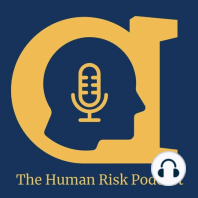55 min listen
Katja Hoyer on Beyond The Wall
ratings:
Length:
72 minutes
Released:
Nov 12, 2023
Format:
Podcast episode
Description
What is it like to grow up in a country that no longer exists? That's the challenge faced by my guest Katja Hoyer. She grew up in the GDR, the German Democratic Republic. Or as most of us think of it, East Germany.While most histories of the country focus on the political decision-making or things that are most extraordinary — for example, the Stasi, the East German secret police or dramatic escapes over the Berlin Wall — Katja wanted to write a more human history.In her book 'Beyond The Wall' or 'Jenseits der Mauer' in German translation, Katja explores not only the politics of the country, but also what life was like for people within the country.Since the book has been out for several months and there are lots of other shows on which you can hear about what's in it — though we do touch on a few human risk-relevant dynamics such as the challenges facing the Stasi in dealing with the information they gathered and the prevalence of paranoia within the country's leadership — I'm interested in the dynamics around the book, rather than the detail of what's in it.You'll hear:why a Germany history researcher is based in the UK, and not as you might expect Germany;what prompted Katja to write the book;the challenges of getting people to speak about the past;'soul lag' what happens when our bodies move faster than our soulsthe reactions to the book in Germany and elsewhereWeimar - the book that Katja is about to start writing.and much, much more.About KatjaKatja Hoyer is a German-British historian, journalist and the author of the widely acclaimed Blood and Iron. A visiting Research Fellow at King's College London and a Fellow of the Royal Historical Society, she is a columnist for the Washington Post and hosts the podcast The New Germany together with Oliver Moody. She was born in East Germany and is now based in the UK.Beyond The Wall is published by Penguin books is available from all good bookstores:https://www.penguin.co.uk/books/447141/beyond-the-wall-by-hoyer-katja/9780241553787Diesseits der Mauer is published ny Hoffmann und Kampe and is also available from all good bookstores: https://hoffmann-und-campe.de/products/63884-diesseits-der-mauerSubstack/Podcasts: to learn more about Katja's writings and podcasts: katjahoyer.ukYou can listen to 'The New Germany', the show she hosts with Oliver Moody here: https://koerber-stiftung.de/en/podcasts/history-politics/podcast-series-the-new-germany/Social Media: You can follow Katja on Twitter/X here: https://twitter.com/hoyer_kat?Her Kings College faculty page is: https://www.kcl.ac.uk/people/katja-hoyerPodcasts where Katja discusses her book:https://www.podbean.com/premium-podcast/travelsthroughtime/Ro9XbpH3jC2mhttps://audioboom.com/posts/8275986-katja-hoyer-beyond-the-wallhttps://www.spectator.co.uk/podcast/katja-hoyer-beyond-the-wall/https://coldwarconversations.com/episode284/https://www.spreaker.com/user/10740198/history-unplugged-beyond-the-wall-with-aDirk Oschmann's book 'Der Osten: eine Westdeutsche Erfingung'https://www.ullstein.de/werke/der-osten-eine-westdeutsche-erfindung/hardcover/9783550202346
Released:
Nov 12, 2023
Format:
Podcast episode
Titles in the series (100)
Jez Groom & April Vellacott on Ripple: The Big Effects of Small Behaviour Changes: On this episode I speak to Jez Groom and April Vellacott, the authors of a new BeSci book called "Ripple". Jez and April talk about their journeys in BeSci, provide some fascinating insights from their book and we finish with a discussion about the... by The Human Risk Podcast
